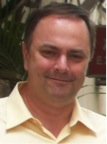Seminar Series: Ethnomedicine and Biomedicine in Rural Senegal: Rationality and Magical Thinking
| When |
Oct 14, 2013
from 12:00 PM to 01:00 PM |
|---|---|
| Where | 0124B Cole Student Activities Building |
| Contact Name | Tiffany Pittman |
| Contact Phone | 301-405-6403 |
| Add event to calendar |
|
About the Talk
In this research Dr. Sandberg explores cultural models among members of a rural population in Senegal related to the use of ethnomedical and biomedical therapies. The use of ethnomedical therapies is often disparaged among Western medical and public health practitioners as motivated by magical thinking. In contrast, the use of biomedical therapy as an alternative is thought to reflect more rational behavior. In many traditional societies the relative richness of schemas and experiential context surrounding ethnomedical conceptualizations of disease and therapies and paucity thereof concerning the biomedical model therapy call such assumptions into question. Using innovative disease-narrative data gathered as part of the Niakhar Social Networks and Health Project (NNHSP) Dr. Sandberg and his colleagues examine the dimensionality of schemas and associated behaviors motivating and influenced by the choice of therapeutic model, whether biomedical or ethnomedical.
About the Speaker

Trained as a Social Demographer at the Population Studies Center at the University of Michigan, Prof. Sandberg's research interests are children's time use and socialization, ego-centric network methodology and learning and social reproduction through social networks, specifically learning about demographic processes. In collaboration with colleagues he has published a number of works on children's time use in the United States using data from the 1997 Child Development Supplement to the Panel Study of Income Dynamics (PSID-CDS), including analyses of how American children spend their time and changes occurring in time use in the last 20 years, as well as determinants and patterns of children's time use with fathers in two parent families. His current research is exploring the relationship of children's time use to parental child-socialization values and gender role attitudes. Prof. Sandberg was awarded the Innovation in Social Research Dissertation award from the Institute for Social Research at the University of Michigan for his work relating the experience of infant and child mortality in individuals' social networks to their fertility beliefs, desires and behaviors in a small village in Nepal. This research suggests that at least to some degree previous work finding a lack of association between aggregate infant and child mortality and individual fertility behavior may have been thwarted by imprecise measurement of this fundamentally social process at the core of classical demographic transition theory.
